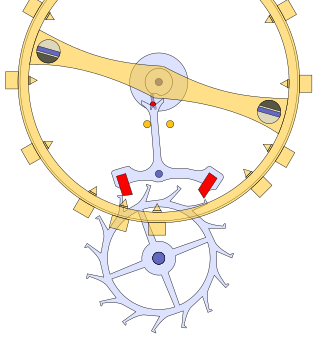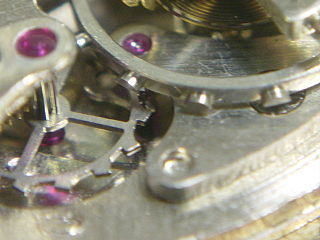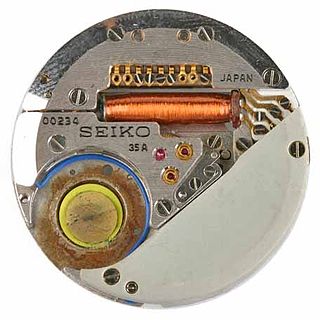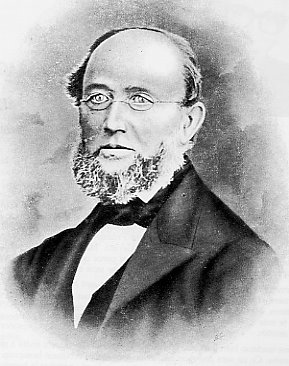
A watch is a portable timepiece intended to be carried or worn by a person. It is designed to keep a consistent movement despite the motions caused by the person's activities. A wristwatch is designed to be worn around the wrist, attached by a watch strap or other type of bracelet, including metal bands, leather straps, or any other kind of bracelet. A pocket watch is designed for a person to carry in a pocket, often attached to a chain.

Seiko Group Corporation, commonly known as Seiko, is a Japanese maker of watches, clocks, electronic devices, semiconductors, jewelry, and optical products. Founded in 1881 by Kintarō Hattori in Tokyo, Seiko introduced the world's first commercial quartz wristwatch in 1969.

Patek Philippe SA is a Swiss luxury watch and clock manufacturer, located in the Canton of Geneva and the Vallée de Joux. Established in 1839, it is named after two of its founders, Antoni Patek and Adrien Philippe. Since 1932, the company has been owned by the Stern family in Switzerland and remains the last family-owned independent watch manufacturer in Geneva. Patek Philippe is one of the oldest watch manufacturers in the world with an uninterrupted watchmaking history since its founding. It designs and manufactures timepieces as well as movements, including some of the most complicated mechanical watches. The company maintains over 400 retail locations globally and over a dozen distribution centers across Asia, Europe, North America, and Oceania. In 2001, it opened the Patek Philippe Museum in Geneva.

Piaget SA is a Swiss luxury watchmaker and jeweller. Founded in 1874 by Georges Piaget in the village of La Côte-aux-Fées, Piaget is currently a subsidiary of the Swiss Richemont group.

Oris SA is a Swiss luxury manufacturer of mechanical watches. The company was founded in 1904 and is based in Hölstein in the canton of Basel-Landschaft.

The lever escapement, invented by the English clockmaker Thomas Mudge in 1754, is a type of escapement that is used in almost all mechanical watches, as well as small mechanical non-pendulum clocks, alarm clocks, and kitchen timers.

A Roskopf, pin-lever, or pin-pallet escapement is an inexpensive, less accurate version of the lever escapement, used in mechanical alarm clocks, kitchen timers, mantel clocks and, until the 1970s, cheap watches now known as pin lever watches. It was popularized by German watchmaker Georges Frederic Roskopf in its "proletarian watch" from 1867. It was invented by Louis Perron, of Besançon, suggested to Roskopf by Jules Grossmann.

Montres DOXA S.A. is an independent Swiss watch manufacturer founded in 1889. Doxa is best known for its dive watches.

Automatic quartz is a collective term describing watch movements that combine a self-winding rotor mechanism to generate electricity with a piezoelectric quartz crystal as its timing element. Such movements aim to provide the advantages of quartz without the inconvenience and environmental impact of batteries. Several manufacturers employ this technique.

Dreffa makes Swiss watches. The name is a trademark owned by TGX Holdings.

A mechanical watch is a watch that uses a clockwork mechanism to measure the passage of time, as opposed to quartz watches which function using the vibration modes of a piezoelectric quartz tuning fork, or radio watches, which are quartz watches synchronized to an atomic clock via radio waves. A mechanical watch is driven by a mainspring which must be wound either periodically by hand or via a self-winding mechanism. Its force is transmitted through a series of gears to power the balance wheel, a weighted wheel which oscillates back and forth at a constant rate. A device called an escapement releases the watch's wheels to move forward a small amount with each swing of the balance wheel, moving the watch's hands forward at a constant rate. The escapement is what makes the 'ticking' sound which is heard in an operating mechanical watch. Mechanical watches evolved in Europe in the 17th century from spring powered clocks, which appeared in the 15th century.

A counterfeit watch is an unauthorised copy of an authentic watch. High-end luxury watches such as Rolex, Patek Philippe and Richard Mille are frequently counterfeited and sold on city streets and online. With technological advancements, many non-luxury and inexpensive quartz watches are also commonly counterfeited.

The Geneva Seal (English), Poinçon de Genève (French), or Genfer Siegel (German) is the official seal of the City and Canton of Geneva, Switzerland. When a variation of the official seal is applied to wristwatch movements, the Geneva Seal is the quality seal of the Watchmaking School of Geneva and it has an official purpose as defined by the law.

The quartz crisis was the upheaval in the watchmaking industry caused by the advent of quartz watches in the 1970s and early 1980s, that largely replaced mechanical watches around the world. It caused a significant decline of the Swiss watchmaking industry, which chose to remain focused on traditional mechanical watches, while the majority of the world's watch production shifted to Japanese companies such as Seiko, Citizen, and Casio which embraced the new electronic technology.

Georges Frederic Roskopf, the inventor of the pin-pallet escapement, was born in Germany and became a naturalized Swiss citizen.
Roamer is a Swiss manufacturer of luxury watches, now based in Wallbach, Switzerland.

Arcadia Watches is a Swiss brand of luxury watches established in 1858. In 1968 the brand ceased following a decline caused by the introduction of quartz movements. It was relaunched in 2007 by Claude Sanz, owner and President of Maison Bunter based in Geneva, and the first new Arcadia watch, the AC01, entered the market in 2010.

















